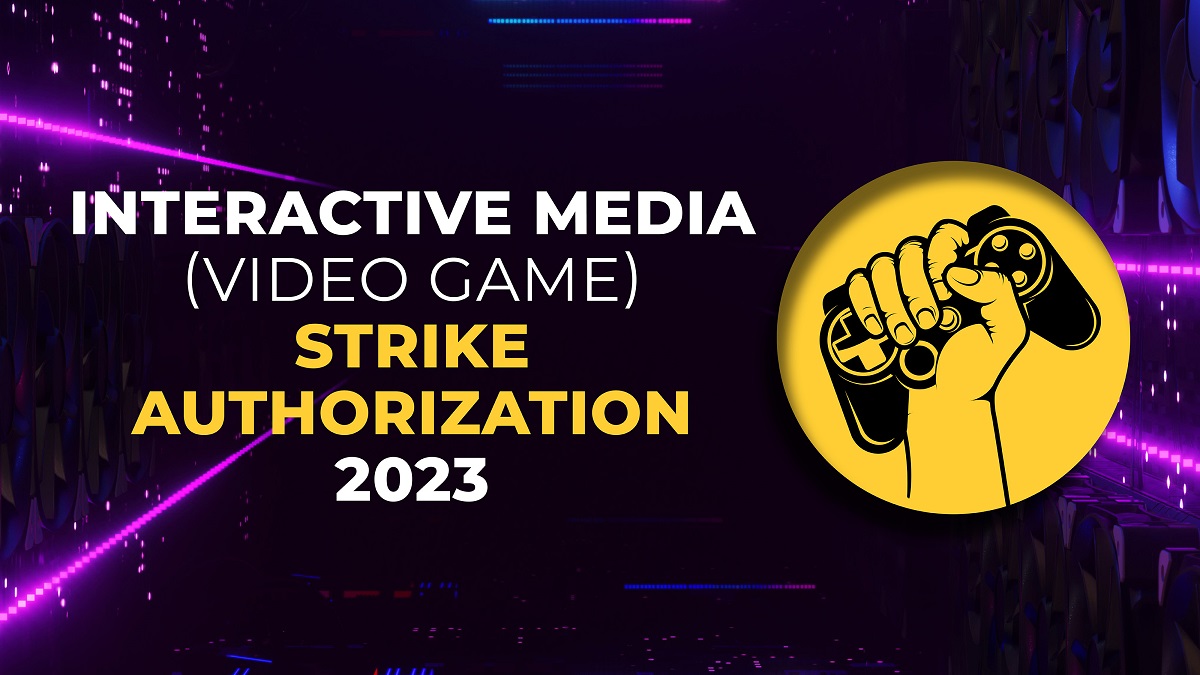SAG-AFTRA Unanimously Authorizes Vote for Possible Video Game Actors Strike
*Mario voice* Mama mia! Here we go (again)!

Just in time for Labor Day weekend, the National Board of SAG-AFTRA announced a unanimous decision to send a strike authorization vote to its members for actors working in video games. In a press release made on Friday, the Screen Actors Guild outlined why a separate strike against 10 major video game companies is necessary after their existing Interactive Media Agreement expired nearly a year ago:
“Although key issues like wages that keep up with inflation and protections against unrestrained use of artificial intelligence are common sticking points in negotiations, the Interactive Media (Video Game) Agreement is a separate contract from the TV, theatrical and streaming contracts against which SAG-AFTRA members are currently striking.”
A strike for video game contracts would have voice actors and actors who provide performance capture for animation joining picket lines alongside the current striking members of SAG-AFTRA and their comrades in the Writers Guild of America. Both voice actors and actors providing digitally captured performances are subject to the same pitfalls as their other entertainment counterparts in unregulated AI and corporate greed endangering the livelihoods of anyone trying to make a living as an actor in games.
As laid out in the statement from SAG-AFTRA, along with AI protections, the guild is also asking for wage increases comparable to film and TV work in the form of increases of “11% retroactive to expiration and 4% increases in the second and third years of the agreement.” Safety provisions are also included in the list of demands, including asks for on-camera performers to have the same five-minutes-per-hour rest period as off-camera performers, set medics present during stunts or hazardous work on set, prohibitions against stunts for self-taped auditions, and stress protections for vocal performers.
Eligible SAG members will have until September 25 to send in their votes, with bargaining set to resume with video game companies on September 26. A “yes” vote from membership does not automatically initiate a strike, but it does give the negotiating committee more bargaining power, as confirmation that a strike will happen if companies don’t agree to the guild’s demands. The 10 companies currently under contact under SAG’s Interactive Media Agreement include Activision Productions Inc., Blindlight LLC, Disney Character Voices Inc., Electronic Arts Productions Inc., Epic Games, Inc., Formosa Interactive LLC, Insomniac Games Inc., Take 2 Productions Inc., VoiceWorks Productions Inc., and WB Games Inc.
The last video game actors strike from SAG-AFTRA in 2016 still holds the record as the longest strike in the history of the Screen Actors Guild, at 340 days. As outlined in a 2016 Deadline article, this was largely a fight over the lack of residuals for video game actors, or longterm payments for the reuse of actors’ work, which are standard in film and television. It’s worth noting that the current SAG-AFTRA agreement for video games, as of 2020, still does not include residuals as part of their standard contracts.
(featured image: SAG-AFTRA)
Have a tip we should know? tips@themarysue.com